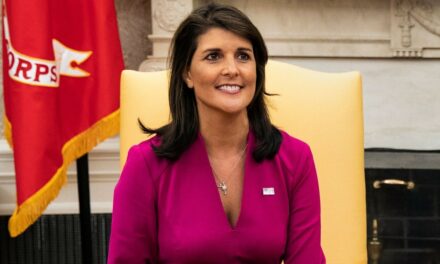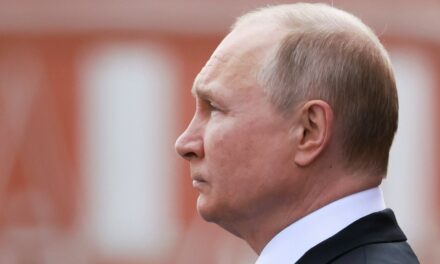We support our Publishers and Content Creators. You can view this story on their website by CLICKING HERE.
A widespread assumption in the foreign affairs community is that Russia would be unable to occupy Ukraine durably even if it won the war. Many believe that Moscow would find the cost of policing a large, hostile country like Ukraine too immense to bear. Therefore, defeating the Ukrainian state can only be a pyrrhic victory. Even if Russia prevails, it will inevitably lose over the long run because it can never pacify and digest Ukraine.
However, there is little evidence that a Russian occupation of Ukraine is bound to fail. The historical record suggests that occupiers usually succeed in controlling and extracting significant resources from conquered territories. In his authoritative study, Peter Liberman showed that twentieth-century occupying powers generally managed to extract large economic rewards and mobilize captured industrial resources. Nazi Germany, Imperial Japan, and the Cold War Soviet Union’s rule over their respective empires were generally sustainable. Popular resistance alone rarely forces an occupier to abandon a conquest.
For sure, occupying and policing Ukraine could be costly for Russia. However, the newfound economic resources, markets, and tax money would help improve the balance sheet. Moreover, a considerable number of Ukrainian men of military age already died in the war. Hence, relatively fewer potential insurgents will be left in the coming years.
Many noted that the 2022 invasion and ruthlessness toward civilians upset even pro-Russian constituencies and solidified Ukrainian nationalism. Yet, it is clear that the Ukrainian society still has many thousands of pro-Russian sympathizers, especially in the east and the south. These would form the backbone of Russia’s civilian administration and help anchor Russian influence in the long run.
Those who expect a heavy drain on Russian military personnel forget that occupation duties are done mainly by natives. Local authorities did the daily policing in former European colonial empires, Iraq, and Afghanistan, with foreign armies in support. In the parts Russia conquers, it will take control of Ukrainian police departments’ remnants. Furthermore, many young Ukrainians will still want to become police officers, like anywhere else in the world. Some will even join the military, either for the pay, for the uniform, or for pro-Russian sympathy. These will be Ukrainian people applying Russian laws and orders. Russian authorities will also have total control over the media space, which would be a solid tool to mold Ukrainians into Russian citizens in the long run.
Finally, Russia can use deportation to alter the demographic balance. It has reportedly sent numerous Ukrainians to faraway corners of the country. Immersed within Russian society and severed from their familiar neighborhood, these people have fewer opportunities to form resistance groups. They are likely to accept Russian authority in time. Indeed, the Kremlin’s hierarchs have been using deportation to break national solidarities for many decades.
Russia has a track record of successful subjugation in recent history. After a vicious civil war, the Kremlin reestablished control over Chechnya, which is now a significant supplier of troops for its Ukrainian campaign. Moscow has maintained stable rule over Crimea for an entire decade. Since pro-Russian forces seized parts of Donetsk and Lugansk Oblasts in 2014, there is little evidence that the two ‘People’s Republics’ paid an unbearable price to remain in power.
Popular resistance to Russian rule in newly conquered areas like eastern Kherson and southern Zaporizhzhia appears small and never seriously threatened Russian military control. Economic activities continue despite Russian occupation. Significant parts of local authorities actually shifted to the Russian side, allowing a smooth transition. In that sense, Moscow has been clever enough not to repeat the American mistake in Iraq of ousting former Baath Party members from government positions.
A likely counterargument will be ‘Vietnam, Afghanistan, and Iraq.’ But in these three cases, the occupiers were not extracting economic resources for themselves. Policing and rebuilding these countries was only a net loss. In Ukraine, the cost of policing and rebuilding will be balanced by the added wealth, population base, and lands that the Kremlin considers highly strategic. Furthermore, Vietnam and Afghanistan’s terrains favored insurgencies. Rebel armies could use mountains and jungles to escape detection, regroup, and protect their logistical lines with neighboring countries. Ukraine is mostly a flat plain.
In Iraq, Afghanistan, and Vietnam, occupiers had to garrison a distant, peripherical country. It was a painful tradeoff because they were not vital interests. However, Ukraine borders Russia’s main rival, NATO. Moscow considers the Ukrainian territory essential to defend Russia’s core and project power in Eastern Europe. It would not be dispatching its military to attempt regime change in a distant corner of the world but securing a vital military interest. Hence, the Kremlin will be less sensitive to occupation costs in Ukraine than the US or the USSR in these three countries.
Some would still argue that ‘this time is different.’ Maybe the Ukrainians are an incredibly rebellious people. Maybe social media will make it harder to contain protestation. Maybe Western underground support for partisans could undermine Russian control. My point is not that Russia will for sure succeed in absorbing Ukraine, but we cannot have confidence it will fail. If Russia conquers Ukraine, it stands a reasonable chance to seize and utilize its population, farmlands, natural resources, industries, and sea ports. It means more tax money and more soldiers in the long term. In addition, it will have gained the muscle memory of fighting a large-scale conventional war, something no Western country has.
How strong popular resistance would be cannot be predicted, but assuming that controlling Ukraine would ruin Moscow is dangerous. Too much of the Ukraine War commentariat rests on the assumption that Russia can never succeed and benefit from the conflict. Nevertheless, dominating Ukraine is more likely than not to improve Moscow’s position in the European and global balance of power.
Regardless of one’s immediate policy preferences, acknowledging that Russian control over Ukraine would probably boost Russia’s long-term power base would lead to a healthier debate.
About the Author:
Dylan Motin is a Ph.D. candidate majoring in political science at Kangwon National University. He is also a researcher at the Center for International and Strategic Studies and a non-resident fellow at the European Centre for North Korean Studies. He is the author of Bandwagoning in International Relations: China, Russia, and Their Neighbors (Vernon Press, 2024). You can follow him on Twitter or X: @DylanMotin.

 Conservative
Conservative  Search
Search Trending
Trending Current News
Current News 





